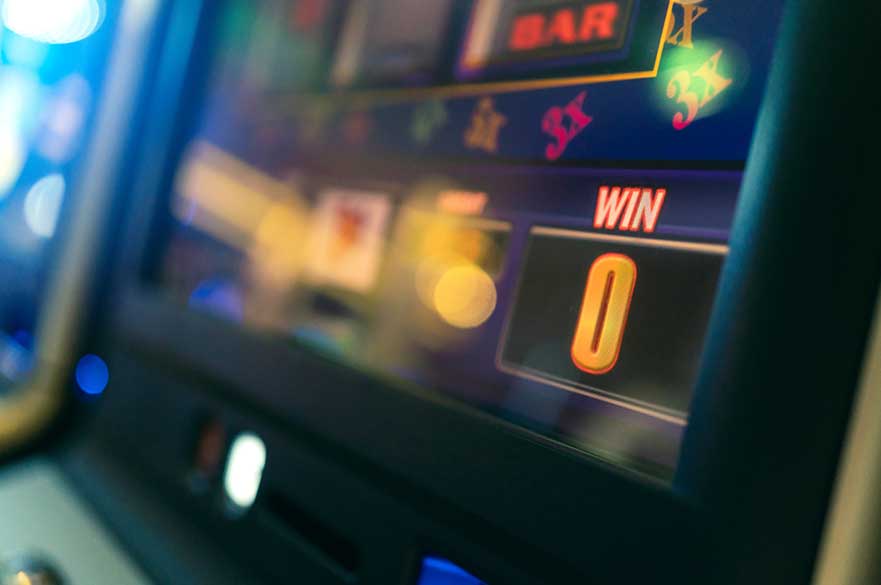Betting shops shown to contribute to higher neighbourhood crime figures
The number of betting shops in a neighbourhood corresponds to higher crime rates, according to research led by Nottingham Trent University (NTU).

The study, with Bournemouth University, used a range of data to examine the relationship between the number of betting shops on ten different police-recorded crime categories in all neighbourhoods across England in 2015 and 2019.
It also considered several other risk factors which have been shown to contribute to higher crime levels, including bus stops, eat and drink shops such as takeaways and bars, household occupations and unemployment levels, deprivation in education, and a higher percentage of private and social renters.
Findings revealed that the likelihood of all the crime categories covered in the research increased by approximately 4% per every one unit increase in betting shops. Even after controlling for other neighbourhood characteristics, the association remains positive and significant.
The strongest relationship was between the number of theft and disorder offences – such as shoplifting, theft from other persons, public disorder, and anti-social behaviour – and the concentration of betting shops.

For example, the statistics showed that with every one unit increase in betting shops, shoplifting counts increased by approximately 16%, theft from person by 10%, anti-social behaviour by 7%, public disorder by 7%, and bike thefts by 6%.
The correlation was less strong for burglary and violent crime, which tend to be associated with the night-time economy and large venues.
Dr Oluwole Adeniyi, lead researcher and senior lecturer at Nottingham Business School, part of NTU, said: “It is not betting shops alone which affect crime rates in neighbourhoods, there are many different factors, as evidenced in this research. What our findings do show is that these characteristics, such as deprivation, are concentrated in similar areas to betting shops, which further increases the likelihood of crime occurring in these neighbourhoods. In times of austerity, we show a need for police resources to be targeted at these areas.”
Co-researcher, Dr Ferhat Tura, lecturer in Criminology at Bournemouth University, added: “Based on our findings we recommend that policies to reduce crime should move away from focusing on individuals to trying to improve informal control within local communities and better place management strategies, both in and near betting shops, by focusing on how to improve positioning of structures such as betting shops, bus stops, and retail outlets within these communities. Any intervention by local authorities should include all stakeholders such as estate agents, property owners and residents.
“Also, considering betting shops are places for social gatherings, planning officials could develop a saturation level index that would make it more difficult for a betting shop to open in areas with high saturation.”
The full paper Analysing the effect of betting shops on crime in England has been published in the journal Regional Studies.
[1] Crime categories: ASB, bicycle theft, other theft, public disorder, shoplifting, theft from person, burglary, criminal damage and arson, robbery, and vehicle crime
-
Notes for editors
Press enquiries please contact Helen Breese, Public Relations Manager, on telephone +44 (0)115 848 8751, or via email.
About Nottingham Trent University
Nottingham Trent University (NTU) received the Queen’s Anniversary Prize for Higher and Further Education in 2021 for cultural heritage science research. It is the second time that NTU has been bestowed the honour of receiving a Queen’s Anniversary Prize for its research, the first being in 2015 for leading-edge research on the safety and security of global citizens.
The Research Excellence Framework (2021) classed 83% of NTU’s research activity as either world-leading or internationally excellent. 86% of NTU’s research impact was assessed to be either world-leading or internationally excellent.
NTU was awarded The Times and The Sunday Times Modern University of the Year 2023 and ranked second best university in the UK in the Uni Compare Top 100 rankings (2021/2022). It was awarded Outstanding Support for Students 2020 (Times Higher Education Awards), University of the Year 2019 (Guardian University Awards, UK Social Mobility Awards), Modern University of the Year 2018 (Times and Sunday Times Good University Guide) and University of the Year 2017 (Times Higher Education Awards).
NTU is the 5th largest UK institution by student numbers, with nearly 39,000 students and more than 4,400 staff located across five campuses. It has an international student population of 7,000 and an NTU community representing over 160 countries.
Since 2000, NTU has invested £570 million in tools, technology, buildings and facilities.
NTU is in the UK’s top 10 for number of applications and ranked first for accepted offers (2021 UCAS UG acceptance data). It is also among the UK’s top five recruiters of students from disadvantaged backgrounds and was the first UK university to sign the Social Mobility Pledge.
NTU is ranked 2nd most sustainable university in the world in the 2022 UI Green Metric University World Rankings (out of more than 900 participating universities).
- Category: Press office; Research; Nottingham Business School; School of Social Sciences


